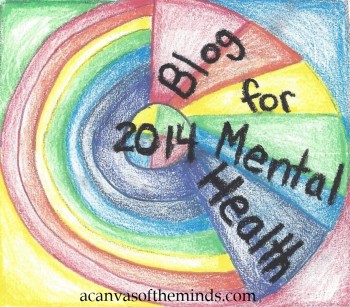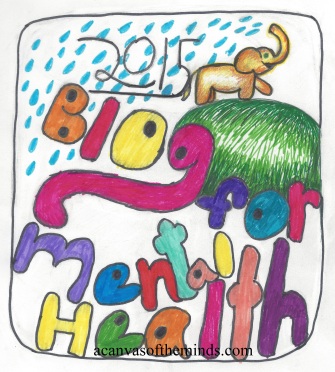Despite the attempts to raise awareness of mental health issues and reduce stigma, people still say hurtful things to people who are depressed. Not because they are mean or uncaring. I think it’s actually because we are not taught more compassionate ways to respond to pain, so we say whatever we think will get the person to stop hurting. Because it hurts to be in the presence of someone who is hurting.
Here are some of the worst offenders:
- I don’t believe in depression. I’m not even sure what this means. It’s one thing to say that you don’t believe in ghosts, or God, or the theory of evolution. But how can you say you don’t believe in an illness? No one says I don’t believe in heart disease. That’s not chest pain. Just go take some Rolaids and stop your whining.
- Suck it up. Because we value stoicism, we think anyone who copes with their pain by pushing through is strong, and anyone who acknowledges their depression is weak. Maybe even wallowing in their pain. So just get out of bed and go to work. No one wants to hear about how you’re feeling.
- Think of all the less fortunate. There are people who don’t have the basic necessities like food, water, and shelter. People who live in war-torn countries. And here you are being all negative just because you don’t feel good. You have nothing to complain about.
- Be thankful. This one is similar to #3. In this case, rather than comparing yourself to others, you are encouraged to count your blessings so that you can see that you actually have no reason to be depressed. You just have a bad attitude.
- You just want to be depressed. I actually had a boyfriend tell me this when I was in college. Because it was so much fun being in my room, unable to go to class or get dressed or answer the phone and to think about suicide all the time. I was having a ball. I hope I broke up with him after he said that.
Hearing these statements from the people we turn to for support can be even more hurtful than the symptoms of depression themselves. Because we already think that we’re lazy, weak, and pathetic. We already beat ourselves up for having no good reason to be depressed. We already feel like failures.
But if you’ve said some of these things, don’t be too hard on yourself. This is how we’ve been taught to respond to pain, so it’s not your fault. It doesn’t make you a bad person.
One of the things I do in therapy is to teach clients how to practice self-compassion, which in turns teaches them to have compassion for other people’s pain. It’s a surprisingly unnatural thing to do, trying to come up with loving statements to say to ourselves. Which is weird, because you’d think this is what we’d want to hear.
Here are some suggestions:
- The only proof I need that I am in pain is that I’m hurting. You don’t have to earn the right do be depressed by having a traumatic childhood or some recent loss. The pain itself is all the evidence you need that you are depressed.
- I will be with my own pain for as long as it lasts. Because this is what we do for people who we care about. We sit with them while they are hurting.
- My pain counts, too. In the self-compassion retreat I attended, I learned that I can focus on giving myself compassion for as long as I need to before sending it to someone else. I can focus on my pain first.
- I can be thankful but still be in pain. Practicing gratitude is helpful, but it is not some magical solution that will make our pain go away. Thankful people with good lives still get depressed.
- What can I do to alleviate some of your suffering? Would it help to eat some breakfast? Turn on some music? Call a friend? These are much better alternatives than screaming at yourself for not being able to get out of bed.
Compassion takes practice, just like anything else. So be gentle with yourself as you try to come up with compassionate statements for yourself and for others.







1. I lived near one of my sisters when I was extremely, horribly depressed. She didn’t believe in depression.
2. I was told to flourish where I was planted. I didn’t choose to leave my home to move to another state. Why would I flourish when I’d lost my home and my job and my husband was cheating on me?
3. Everything is relative. The fact that someone doesn’t have enough to eat doesn’t take away my pain.
4. Oh, yeah, I had so much to be thankful for when I lived in a huge house that I couldn’t get clean enough to satisfy my husband. It was in the country, so I was isolated, too.
5. My husband would not let up on me for curling up in a chair when I read or watched TV. That’s how I relaxed. He said I just sat around with my head hanging over the side of the chair. I asked why it was okay for him to lean back in a recliner to snore and drool on himself.
Do you think more people are starting to understand that depression is an illness, and not a choice? A lot of us are trying to educate the uninformed, but I don’t see much improvement.
Love,
Janie
LikeLiked by 1 person
I hope so, Janie. At least we are doing our part.
LikeLike
Thanks for sharing. I thought my examples were exaggerated so it’s discouraging to hear that you’ve been told things that are even worse than this. I would look for a therapist who teaches self-compassion.
LikeLike
Thank you for this piece Christy. I think i will forward it to a family member who has made one of these comments to me, specifically the one about having so much to be grateful for ” you didn’t grow up in the slum. what do you have to complain about?”. Indeed these comments are very hurtful, more than the symptoms of depression. My most recent therapist is sort of the same way, and i am thinking of changing her because all i hear from her is ‘count the things to be grateful for’. But when i do, all i see is the missing things. Call it the missing tile syndrome. Either way my depression is very real and people around me seem to trivialize it because i have learned the art of pretending in public- most days.
Thank you for your posts, as much as i may not comment i am a faithful reader.
LikeLike